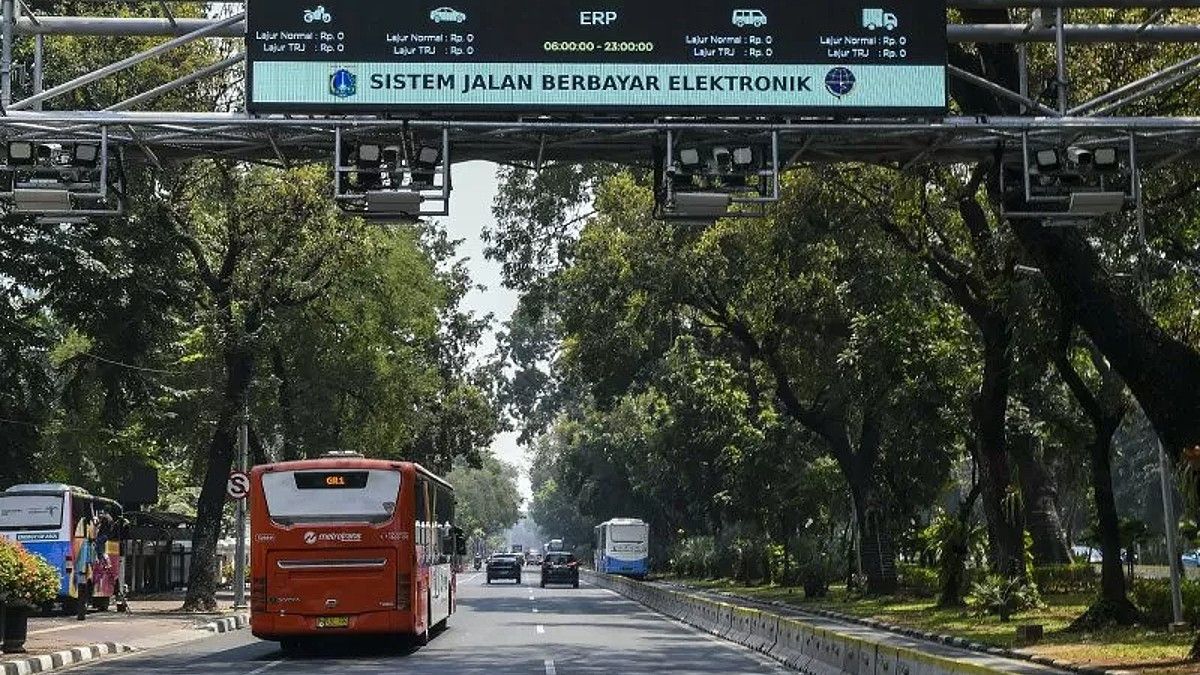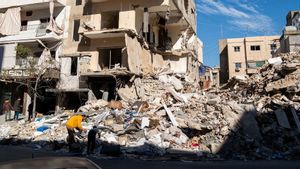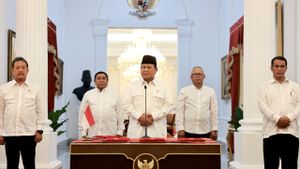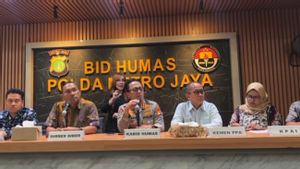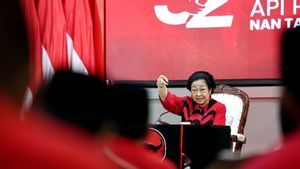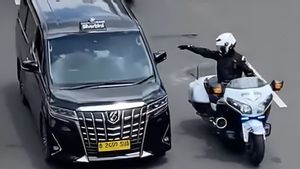JAKARTA - Chairman of Commission B of the DKI Jakarta DPRD, Ismail, asked the DKI Provincial Government not to immediately implement a paid road system or electronic wheel pricing (ERP) on 25 roads if later implemented.
Ismail asked the DKI Provincial Government to understand that the paid road policy burdens the public because they have to spend money when using private vehicles.
Therefore, Ismail suggested, DKI started ERP with trials on three roads first. Given, in ERP planning a few years ago, the DKI Provincial Government will also start it on three roads.
"This seems burdensome even if it is implemented (25 roads). It should be tested on certain sections. In the past, the initial ideas in 2014 were on three roads, Kuningan area, Jalan Rasuna Said. The 3 roads should have been," said Ismail at the DKI Jakarta DPRD Building, Monday, January 16.
On that occasion, Ismail admitted that the DPRD still needed a complete explanation regarding the plan to implement this paid road, starting from the urgency to the implementation mechanism.
In fact, if it is not really needed, Ismail suggested that the DKI Provincial Government optimize traffic control efforts to unravel existing congestion, such as odd-even.
"If the goal is to unravel congestion, after all, optimize odd-even. That's actually possible. Road sections are added without causing burdens to the user community," he said.
For information, a draft Regional Regulation (Raperda) on Electronic Traffic Control that regulates paid roads has been prepared. The Provincial Government and the DKI DPRD have also conducted initial discussions regarding the contents in the draft, but the discussion of articles per article has not been carried out.
Seen in the draft Raperda, there are 25 roads that will be subject to the implementation of ERP, namely Jalan Pintu Besar Selatan, Jalan Gajah Mada, Jalan Hayam Wuruk, Jalan Majapahit, Jalan Medan Merdeka Barat, Jalan MH Thamrin; Jalan Jenderal Sudirman, Jalan Sisingamangaraja, Jalan Panglima Polim, Jalan Fatmawati (Simpang Jalan Ketimun 1-Simpang Jalan TB Simatupang).
Then, Jalan Suryopranoto, Jalan Balikpapan, Jalan Kyai Caringin, Jalan Tomang Raya, Jalan Jenderal S Parman (Jalan Tomang Raya-Simpang Jalan Gatot Subroto), Jalan Gatot Subroto, Jalan MT Haryono, Jalan DI Panjaitan, Jalan Jenderal A Yani (East Bekasi Raya Intersection-Perintis Kemerdekaan Intersection), Jalan Pramuka, Jalan Salemba Raya, Jalan Kramat Raya, Jalan Pasar Senen, Jalan Gunung Sahari; and, Jalan HR Rasuna Said.
Then, electronic traffic control in traffic control areas applies electronically every day from 05.00 WIB-22.00 WIB.
The vehicles charged with ERP rates are road users who use motorized vehicles and electric vehicles. There are a number of vehicles that are excluded in the application of paid road systems, including electric bicycles, yellow plate public motorized vehicles, government agency and TNI/Polri operational service vehicles except/in addition to black plates, foreign diplomatic corps vehicles, ambulance vehicles, corpse vehicles, and fire fighting vehicles.
The amount of tariff for traffic control services electronically and its adjustment is determined by the Governor's Regulation after obtaining approval from the DKI Jakarta DPRD. Meanwhile, the DKI Transportation Agency proposes that ERP be subject to a tariff of IDR 5,000 to IDR 19,000.
The English, Chinese, Japanese, Arabic, and French versions are automatically generated by the AI. So there may still be inaccuracies in translating, please always see Indonesian as our main language. (system supported by DigitalSiber.id)
